Liberia: land grabbing for palm oil? NO means NO!
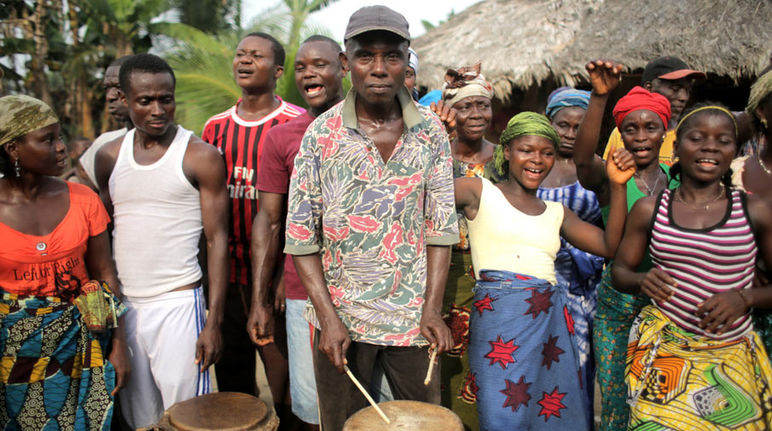 The Liberian Jogbahn Clan is fighting for its land (© Jason Taylor for Friends of the Earth International 2014)
The Liberian Jogbahn Clan is fighting for its land (© Jason Taylor for Friends of the Earth International 2014)
The Jogbahn Clan in Liberia is fighting to keep the palm oil company EPO from clearing its land without permission. Add your voice to our petition to tell EPO that the world is watching. NO means NO!
Call to actionTo: Mr Geoffrey Brown, Executive Director of Equatorial Palm Oil PLC, and Mr Lee Oi Hian, Chief Executive Officer of Kuala Lumpur Kepong Berhad
“Tell Equatorial Palm Oil to respect the Jogbahn Clan’s rights.”
In Liberia, the Jogbahn Clan is fighting to keep British palm oil company Equatorial Palm Oil PLC (EPO) from grabbing its land. On March 5, 2014, the community had a major success when the President of Liberia said EPO could not clear Jogbahn Clan land without community consent. The communities have stood firm and continue to say no, but EPO is not listening. The company is continuing its studies of the clan’s land in preparation for clearing.
Tell Equatorial Palm Oil to respect the Jogbahn Clan’s rights. Sign our petition to the company and its majority shareholder, the Malaysian palm oil giant KLK.
Read more about the clan's story in this moving blog post, 'When our land is free, we're all free'.
To hear first-hand from the community, listen to SDI's radio show.
Get more information on Liberia's indigenous communities here.
To: Mr Geoffrey Brown, Executive Director of Equatorial Palm Oil PLC, and Mr Lee Oi Hian, Chief Executive Officer of Kuala Lumpur Kepong Berhad
Dear Sirs,
Since 2012 communities affected by EPO’s operations in District no.4, Grand Bassa County, Liberia have clearly stated their objections to your company’s expansion on their customary land. These communities have met more than 20 times with local government officials and legislators to express their objections and documentary evidence suggests that EPO has attended several of these meetings.
On March 5th in a meeting between the government and communities from District no.4, Grand Bassa County, the President of Liberia, Ellen Johnson Sirleaf, said EPO would not clear Jogbahn Clan land without community consent. The communities continue to say NO to your company’s expansion onto their land.
Despite this, your company is attempting to conduct Environmental Social Impact Assessments and High Conservation Value Assessments on their land. As these are requirements before land clearing begins, this implies you are not respecting the communities’ right to say no and are planning to clear their land. In any event, even implementing those preparatory activities with regard to Jogbahn Clan land would necessitate access to Jogbahn Clan land and the full participation of the community, which the community refuse.
Land clearance and other preparatory activities in these circumstances would be unlawful, as they do not respect communities’ right to give or withhold their Free Prior and Informed Consent, which is a requirement provided for under both national law and international law. Such activities would also place EPO in violation of its commitments under the RSPO principles & criteria.
Free Prior and Informed Consent (FPIC) is a key principle of Liberia’s Community Rights Law (2009), which provides communities with a right to give or withhold their consent to activities planned on community land or which may impact on that land and the community. FPIC is also an established legal principle supported by numerous regional and international legal instruments to which Liberia is legally bound, including the African Charter on Human and Peoples’ Rights (ACHPR).
As a member of the Roundtable on Sustainable Palm Oil (RSPO), your company is also required to adhere to the RSPO’s Principles and Criteria, which include respect for the customary property rights of communities and FPIC.
Your company’s previous attempts to survey these communities’ customary land without their consent has led to violent conflict and accusations of severe human rights abuses. We urge you to listen to the Jogbahn Clan – NO means NO.
The issue – rainforest on our dinner tables and in our fuel tanks
At 66 million tons annually, palm oil is the most commonly produced vegetable oil. Its low world market price and properties that lend themselves to processed foods have led the food industry to use it in half of all supermarket products. Palm oil can be found in frozen pizzas, biscuits and margarine, as well as body creams, soaps, makeup, candles and detergents.
Few people realize that almost half of the palm oil imported into the EU is used as biofuel. Since 2009, the mandatory blending of biofuels into motor vehicle fuels has been a major cause of deforestation.
Oil palm plantations currently cover more than 27 million hectares of the Earth’s surface. Forests and human settlements have been destroyed and replaced by “green deserts” containing virtually no biodiversity on an area the size of New Zealand.
The impact – suffering and death in producer countries, climate havoc
The warm, humid climate of the tropics offers perfect growth conditions for oil palms. Day after day, huge tracts of rainforest in Southeast Asia, Latin America and Africa are being bulldozed or torched to make room for more plantations, releasing vast amounts of carbon into the atmosphere. As a consequence, Indonesia – the world’s largest producer of palm oil – temporarily surpassed the United States in terms of greenhouse gas emissions in 2015. With their CO2 and methane emissions, palm oil-based biofuels actually have three times the climate impact of traditional fossil fuels.
Palm oil is not only bad for the climate: As their forest habitat is cleared, endangered species such as the orangutan, Borneo elephant and Sumatran tiger are being pushed closer to extinction. Smallholders and indigenous people who have inhabited and protected the forest for generations are often brutally driven from their land. In Indonesia, more than 700 land conflicts are related to the palm oil industry. Human rights violations are everyday occurrences, even on supposedly “sustainable” and “organic” plantations.
As consumers, we are largely unaware of these broader issues, yet our daily palm oil consumption also impacts our health: refined palm oil contains large amounts of harmful fatty acid esters that are known to damage DNA and cause cancer.
The solution – a revolution on our dinner tables and in our fuel tanks
Only 70,000 orangutans still roam the forests of Southeast Asia, yet the EU’s biofuels policy is pushing them to the brink of extinction. Every new plantation on Borneo is destroying a further piece of their habitat. Stepping up the pressure on policymakers is a must if we want to save our tree-dwelling kin. Apart from that, however, there is still a lot we can do in day-to-day life.
Follow these simple tips to recognize, avoid and combat palm oil:
- Enjoy a home-cooked meal: Use your imagination: why not try almond-coconut-pear biscuits? Or pizza with potato and rosemary? A meal cooked from fresh ingredients beats processed foods containing palm oil every time. Oils such as sunflower, olive, rapeseed or flaxseed are ideal for cooking and baking.
- Read labels: As of December 2014, labeling regulations in the EU require food products to clearly indicate that they contain palm oil. However, in the case of non-food items such as cosmetics and cleaning products, a wide range of chemical names may still be used to hide the use of palm oil. A quick check of your favorite search engine will turn up palm oil-free alternatives, however.
- Remember that the customer is king: Ask your retailers for palm oil-free products. Write product manufacturers and ask them why they aren’t using domestic oils. Companies can be quite sensitive to issues that give their products a bad name, so inquiring with sales staff and contacting manufacturers can make a real difference. Public pressure and increased awareness of the problem have already prompted some producers to stop using palm oil.
- Sign petitions and write your elected representatives: Online campaigns put pressure on policymakers responsible for biofuels and palm oil imports. Have you already signed all of Rainforest Rescue’s petitions?
- Speak out: Protest marches and creative action on the street raise public and media awareness of the issue, which in turn steps up the pressure on policymakers.
- Leave your car at home: Whenever you can, walk, ride a bicycle or use public transport.
- Be informed and inform others: Big Business and governments would like us to believe that biofuels are good for the climate and that oil palm plantations are sustainable. Spread the word – share this information with your family and friends and encourage them to rethink their consumption habits. It’s in our hands!

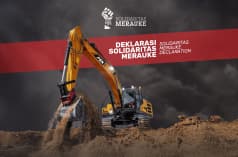
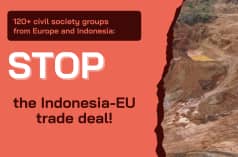








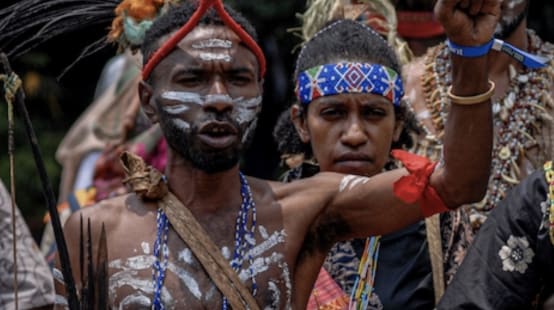
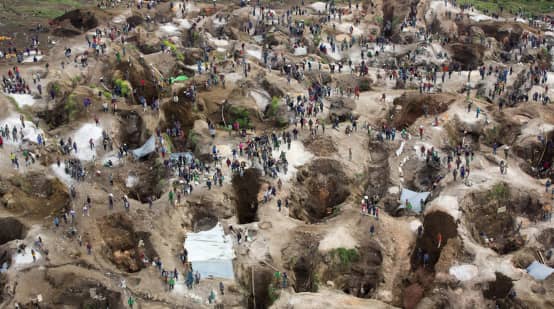
 Recent successes
Recent successes